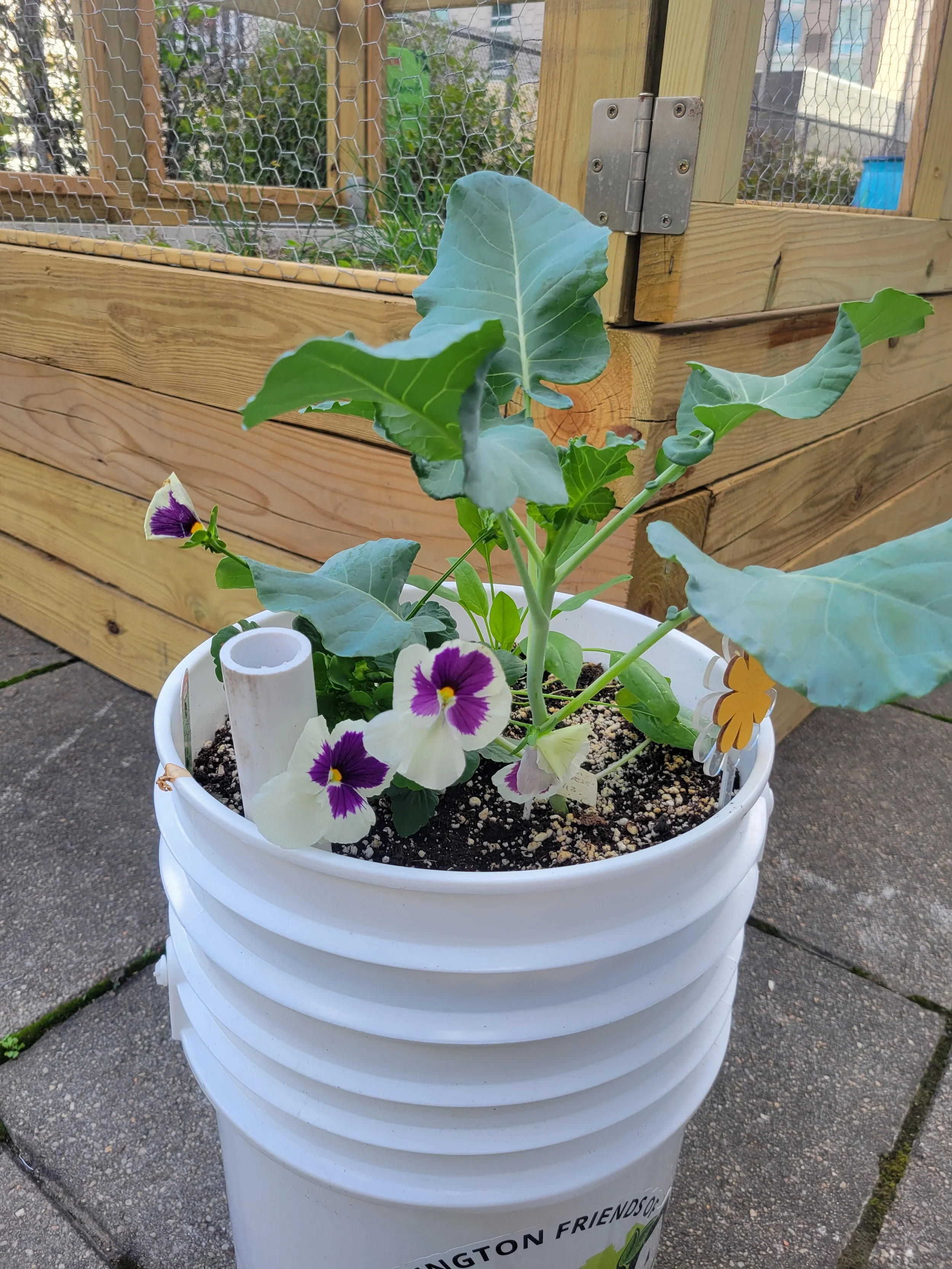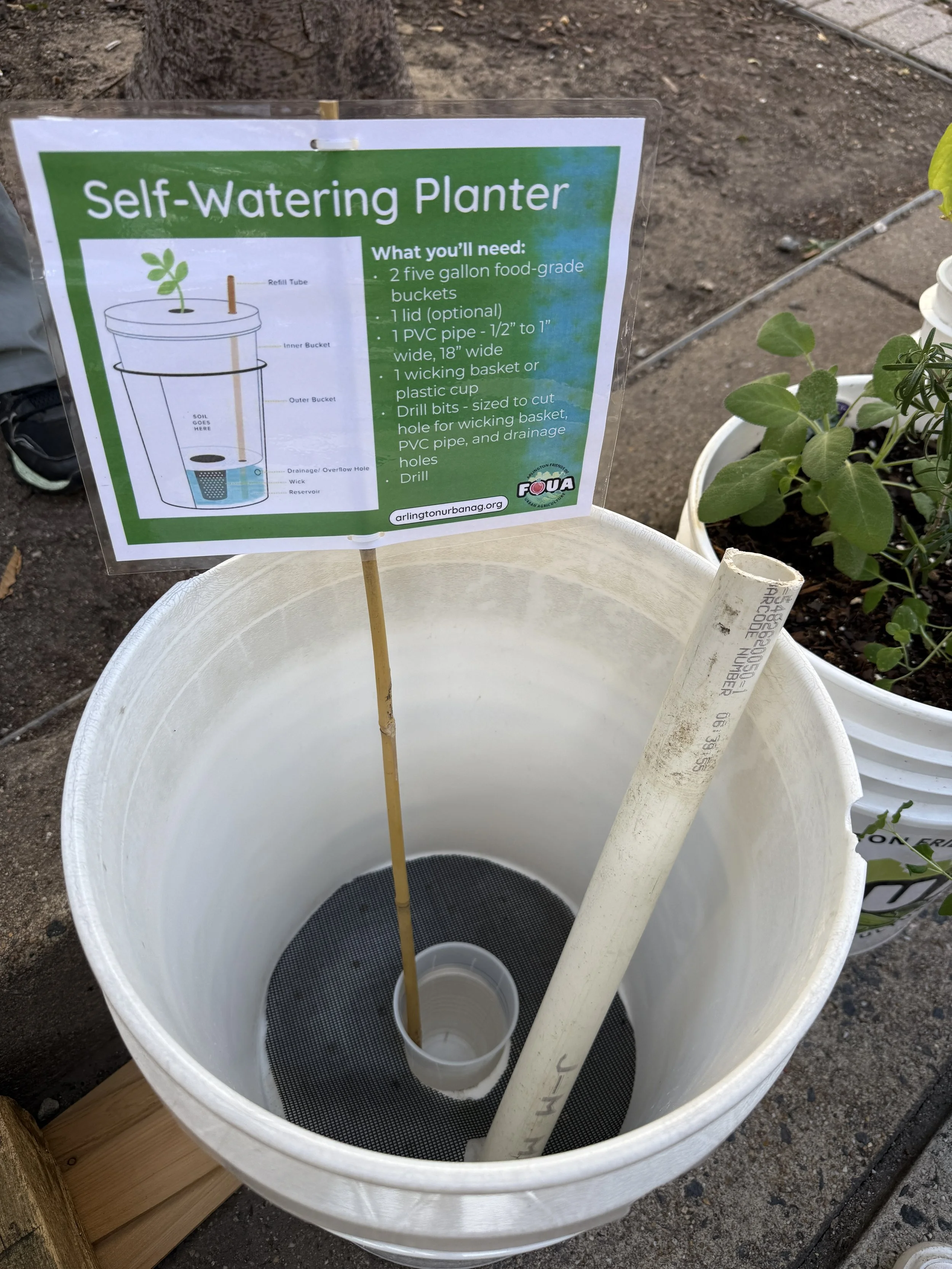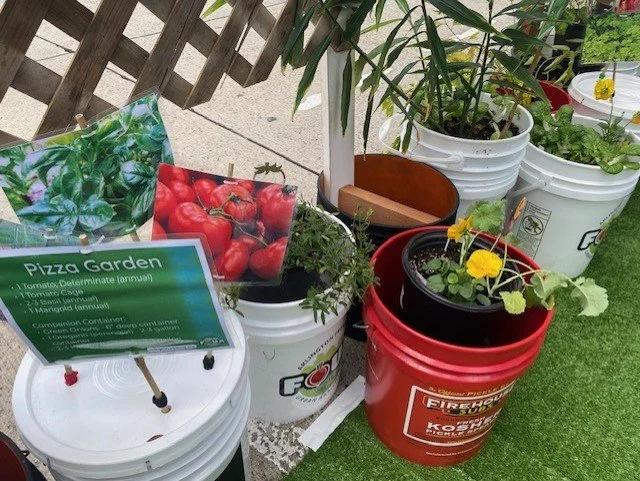DIY Urban Agriculture: The 5-Gallon Bucket Edition
A Simple, Scalable Way to Grow Food Anywhere
Why a Bucket?
When space is scarce, the 5-gallon bucket becomes a small but mighty tool for urban food production.
During PARK(ing) Day, Friends of Urban Agriculture (FOUA) reimagined two parking spaces as micro-food systems to launch Arlington’s Urban Agriculture Month (October). The goal: to show that you don’t need land — just creativity, a bucket, and a bit of sunlight to grow food.
The Arlington Context
Arlington County is only 26 square miles, and 73% of its homes are apartments or condos. For many residents, growing food means making the most of balconies, rooftops, front stoops, small patios, or sunny windows.
You don’t need a plot to grow food.
Broccoli and pansies - great for fall.
How to Use a 5-Gallon Bucket
Here are a few ways to turn a simple bucket into a mini food system:
1. Drip Irrigation
Create a low-cost watering system using a bucket with a quarter-inch drip line — great for rooftops or raised beds.
2. Self-Watering Planter
Add a perforated insert and overflow hole to create a planter that waters itself for up to a week.
3. Container Growing
Grow herbs, lettuce, strawberries, blueberries, or even dwarf fruit trees in portable planters that follow the sunlight.
4. Pickling & Storage
Food-grade buckets are perfect for fermentation or long-term food storage.
5. Composting & Mosquito Control
Use buckets for small-batch composting or to safely store standing water with mosquito dunks.
Getting Started
All of our buckets were upcycled from grocery store bakeries and restaurants — free, food-safe, and ready for transformation. Some were painted to highlight how practical tools can be beautiful too.
Start where you are. Use what you have. Grow what you can.
Quick Tips:
Search “DIY 5-gallon bucket garden” for video tutorials.
Ask local delis or bakeries for used buckets.
Experiment — irrigation today, compost tomorrow.







